Please check the answer I gave here for more information:
Android recommended and reliable API for periodic background work?
1. Downloading a large file (500mb)
a. Once a day on exact time - you can set an alarm here to be exact, but then you hit the Android 12 limitation for starting services from the Background(more on this in the other comment). So it depends on the use case. I just would not go there.
b Once a day when the OS can, in any time - go with the WorkManager, but in theory it depends on the Power Buckets so if you go in the lower ones you might go a little above a day. Also, it is different to start and to finish. You might start hitting the 10min per day limitation. (more on this in the other comment)
2. Downloading small file (5k)
a. Once a day on exact time - as a large file.
b Once a day when the OS can, in any time - as a large file.
3. Setting alarm at exact time - it depends on what you do. I don't understand this
4. Sync DB with server (large data about 5min runtime) - you need WorkManager for stuff like this.
For all the above - the 15min comes from Doze mode. But even it comes in "2 flavors". This 15min is just on theory. In reality it might be even more. WorkManager has the concept of a "periodic work". In reality there is no such a thing. WorkManager uses the concept of constraints. So you have the constraint that you need a Network, you are constrained that you need a device to be charging and you have a "time constrain". So you see - a "periodic work" of 24 hours is just a work with an extra constrain: "do not start in less than 24 hours". But it doesn't mean "every 24 hours". In theory 24 might have passed, the timing constrain is satisfied and then for other reason you are executed successfully in 1 week and the work is rescheduled again with another 24 hours time constrain.
For stuff like "every 5min, 15min, 15min" - just raise a Service with the following text in the Service notification: "Our application hates your battery", never stop it, and do whatever you need :) But is totally against the new Android concept.
Even if you use push notifications if they are not a high priority you will effectively fall back to WorkManager to do the work later.
Even like I said: "once a day" means "most likely once a day"
a. Every 15 min (Minimal time?)
b. Once a Day
5. Sync DB with server (small data less than 1sec runtime)
a. Every 5 min
b. Every 15 min
c. Once a Day
